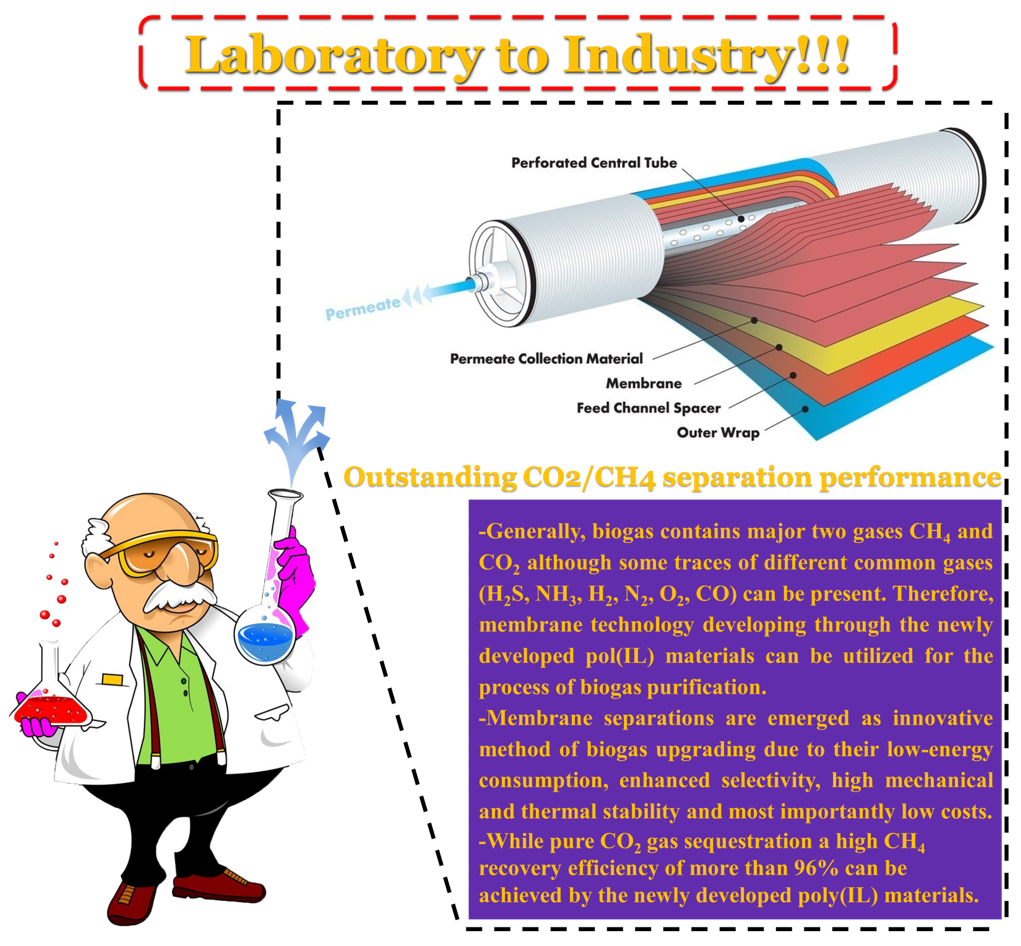2020 Virtual AIChE Annual Meeting
(3cq) Unprecedented Polymeric Ionic Liquids (PILs) Membranes for Energy-Saving Separation Technology and Environmental Green Energy Applications
Improving the efficiency of separation processes is of great interest and an enduring challenge in chemical, energy and environmental processes, such as gas separation for large-scale energy and oil & gas industry (natural gas purification, CO2 separation, air separation, hydrocarbons separations in the petrochemical industry, etc), chemical separations, and water desalination and purification. Traditional separation processes (amine scrubbing, cryogenic distillation, PSA) can be replaced by membrane separation processes (MSP) with significant research efforts. MSP contributes positively to a prerequisite development of alternative, renewable, or low environmental impact energy sources. The principal aim of Dr. Irshad Kammakakamâs research is to develop novel and efficient organic-polymer matrix membranes and porous hybrid membranes either build from or containing ionic liquids (ILs) with a wide range of applications in the energy storage and chemical separation industry. Dr. Kammakakamâs research will address to overcome known difficulties in developing gas separation membranes employing either the size sieving or the solution-diffusion mechanisms, and the accurate control of pore structures (pore size, shape, and distribution) in hybrid membranes for high flux water filtration applications. Dr. Kammakakamâs research also engineers novel ionic materials into polymer electrolyte membranes for applications in fuel cells and Li-ion batteries. Overall, his research plans anticipate promising strategies for designing IL-based polymer membranes for various practical applications.
Teaching Interests
Developing students with strong backgrounds in STEM is crucial to the success of any department. Lectures and homework should bring technical knowledge as well as problem-solving capacities for working in an industrial or research environment. Dr. Irshad Kammakakamâs research knowledge and teaching experience have prepared him to teach a variety of undergraduate and graduate courses. He has a solid academic foundation and strongest teaching classes relating to polymer science and engineering, membrane separation processes, and general organic and polymer chemistry, but he is certainly wished to teach any areas where he can be useful to the department.
